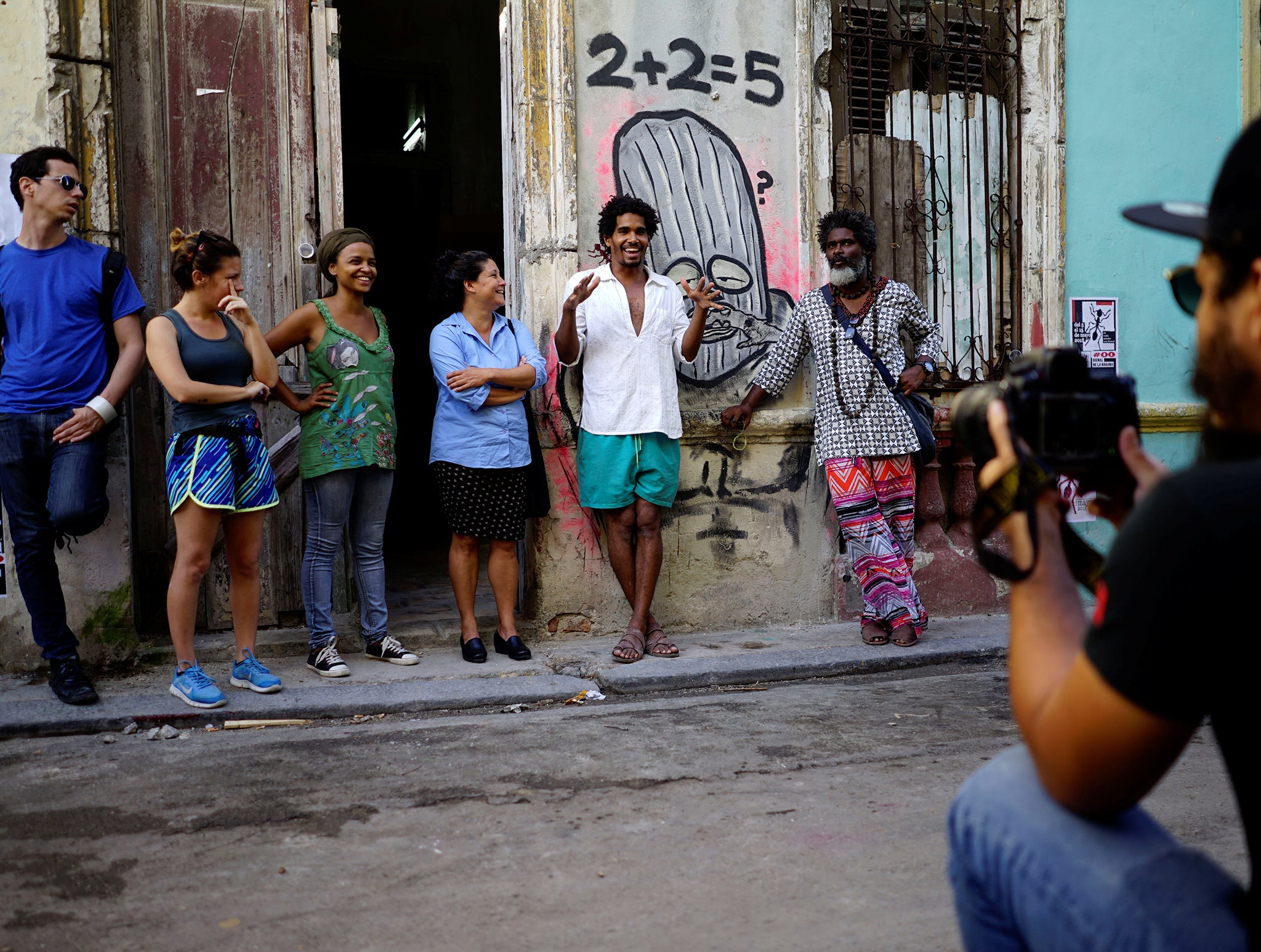Cuban artists take matters into their own hands after government cancels major festival
The government claimed money was needed to prioritise rebuilding after Hurricane Irma

Your support helps us to tell the story
From reproductive rights to climate change to Big Tech, The Independent is on the ground when the story is developing. Whether it's investigating the financials of Elon Musk's pro-Trump PAC or producing our latest documentary, 'The A Word', which shines a light on the American women fighting for reproductive rights, we know how important it is to parse out the facts from the messaging.
At such a critical moment in US history, we need reporters on the ground. Your donation allows us to keep sending journalists to speak to both sides of the story.
The Independent is trusted by Americans across the entire political spectrum. And unlike many other quality news outlets, we choose not to lock Americans out of our reporting and analysis with paywalls. We believe quality journalism should be available to everyone, paid for by those who can afford it.
Your support makes all the difference.A group of Cuban artists launched an alternative arts festival this weekend in Havana in response to the Communist government saying it was postponing the official biennial by a year to prioritise funding on rebuilding after Hurricane Irma.
The artists had been indignant at the delay of the state-run arts extravaganza, which typically takes over Havana for a month and allows them to showcase their art to international collectors, galleries and curators.
They said they felt the decision to postpone it to 2019 had to do with the political transition this year and a fear of anything that could cause instability. Cuba named a new president last month, Miguel Diaz-Canel, to replace Raul Castro.
While the "00Biennial" which runs for 10 days until 15 May does not have the scope of the official one, it is offering an unusual independent platform for artists in a country where the state dominates many aspects of society.
The government has criticised it as a "provocative manoeuvre" but allowed it to go ahead, something unthinkable 10 years ago, according to organiser and artist Luis Manuel Otero Alcantara.
"We are not against the Havana biennial," Mr Alcantara told the crowd at the event's inauguration on Saturday outside his home in Old Havana which is hosting a dozen exhibits.
"But why should we not project our ideas from an alternative platform or that of individual art?"
Cuba punches above its weight culturally, partly because the Communist government has invested so heavily in the arts since the country's 1959 revolution, seeking to make culture less elitist and more universally accessible.
Mr Alcantara said the 00Biennial, which is taking place in the independent studios that have flourished throughout Havana in recent years as the country has opened up, does not aim to attack Cuban institutions or showcase political art.
However, Cuba's National Union of Writers and Artists accused it this week of creating "a climate propitious to promoting the interests of the enemies of the nation".
Cuba's longtime foe, the United States, has in the past provided funds to promote anti-establishment artists as part of its efforts to foster political change on the island.
Many Cuban artists say they are tired of that being used as an excuse to shut down independent arts movements, and complained about pressure from authorities not to participate.
The 00Biennial is focused on a wide range of artists, including Cuba's rappers. It is also showcasing artists working within the establishment, like Reynier Leyva Novo, who has exhibited work at the official Havana Biennial as well as the Cuban state pavilion at the Venice Biennial.
In what he called a performance, Leyva Novo sold an artwork to the National Council of Visual Arts and donated the $3,800 payment to the 00Biennial, to undercut government accusations of it receiving "funds of the mercenary counter-revolution".
"They try to discredit you saying you are counterrevolutionary," he said. "But really this is a genuine cultural project in the absence of an official space."
Reuters
Join our commenting forum
Join thought-provoking conversations, follow other Independent readers and see their replies
Comments